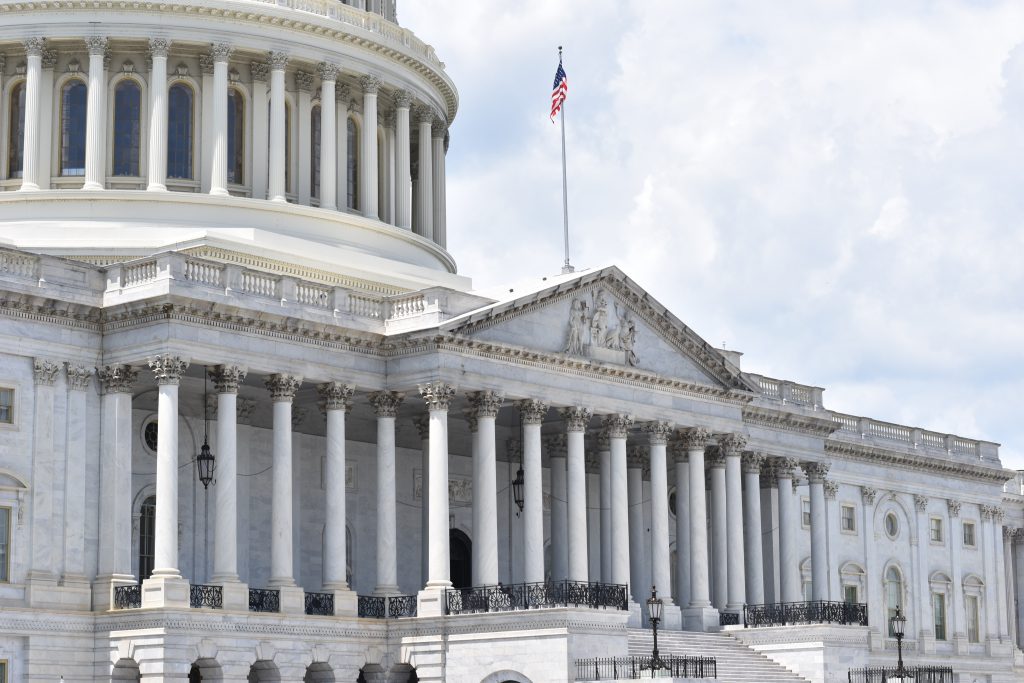This is a free essay sample available for all students. If you are looking where to buy pre written essays on the topic “Why We Should Keep The Electoral College”, browse our private essay samples.
In this day and age, democracy is the most popular and often the only “acceptable” form of government. Through this system, people’s representatives are elected by the people themselves through a plethora of means. Many countries employ popular votes while others resort to some sort of “electoral college” to voice the will of the people.
Since its inception as a federal republic by the founding fathers, the Electoral College has been a subject of much-heated debate. Those who want to abolish the Electoral College and this idea of “representative democracy” are of the view that it is inherently flawed with elements from the time of “slavery” and “racism” to put forth the popular vote.
Still, the Electoral College is standing and working every four years in deciding the most important verdict of the US – electing a president!
In this post, we will go through some of the reasons why we should keep the Electoral College to keep checks and balances in the political edifice of the country.
Do you need to score high on your school essay for overall good grades? We can set the stage for you! Our expert writers have ample experience and expertise in writing excellent, well-researched custom essays. Reach out to us now!
Reasons to Keep the Electoral College
The Electoral College is in its place and working since the founding of the republic. The constitution has gone through many amendments but no Congress had thought about getting the electoral college out of it.
Since the 18th century, the Electoral College system and the electoral vote is protecting and preserving the rights of the American people by erecting much-needed checks and balances in the electoral process. That’s why no matter the number of popular votes, the one who becomes an elected president has to secure a majority in the Electoral College.

Even with criticism and some key incidents in the presidential election history, the political fraternity and the public are still holding on to the Electoral College system and the Electoral College votes.
Following are some of the reasons why:
- Safeguards American Federalism
- Ensures Evolutionary Institutions
- Induces Nation-Wide Appeal & Campaigns
- Promotes Undisputed Results
- Shields From Risks of Popular Vote
- Checks Electoral Frauds
- Fosters Legitimacy of Electoral Results
Now, let’s discuss each of the reasons in detail to see how the Electoral College system preserves American rights and democracy during elections and beyond.
Safeguards American Federalism
The founding fathers laid the foundation of the country based on federalism. The idea involves no strong central government, but more autonomous states and cities with a loose federal government to keep things in balance.
The Electoral College is prescribed and enforced by the US constitution but the states have their say in;
- Determining the procedure of how electors will be selected
- Voicing their concerns regarding the electoral process irrespective of their size and demographics
Many political scientists believe that opening US federalism to reforms and reviews, such as direct election, will lead to the political tug of war seen in parliamentary or two party system politics. If this supposed review of the electoral voting continues, the US Senate would lose its need to exist because each of its members represents an entire state. Also, state governments would lose footing in national politics because, in the absence of the Electoral College vote, electoral votes will exert influence in elections.
Ensures Evolutionary Institutions
Politics and administration often go hand in hand, but they diverge on the most basic front. The former believes in changing stances and views instantly while the latter is rooted in a slow and evolutionary process through testing and deliberation.
With the checks and balances in place in the US Constitution through the Electoral College votes, one can argue that the government is not to move forward in either direction.

In the presence of the Electoral College, states are acting as filters and fillers in national politics. The changes it allows take time to hold through all branches of the state, including legislative, judicial, and executive.
That’s the reason a senator is awarded six years or a presidential candidate four years to work and implement policies without the need to secure a mandate every few years.
In the absence of this, the political pendulum will have no buffer and it could swing to extremities.
Induces Nation-Wide Appeal & Campaigns
The opponents of the Electoral College votes believe that it allows presidential candidates to skew results in their favor by focusing on some regional states. This could not be farther from the truth.
In reality, the Electoral College ensures that “everyone’s president” sits in the oval office by compelling candidates to go truly national in their campaigns and calls. Voters from “small” states don’t need to worry about losing their say in the presidential race because of their state and votes matter.
In a close presidential candidate election, small states like DC and many other with three electoral votes each can turn the tide in the favor of their candidates. The Electoral College made by the founding fathers offers the necessary leverage to states with minorities or those who are often believed to be sidelined by the political parties in the national decision-making process.
Promotes Undisputed Results
In popular vote mode, recounts and controversies are a norm that often leads to political chaos. The Electoral College ensures that the elected president must have a majority count. Otherwise, the legitimacy of the office-holder along with any decision he or she makes could be of serious consequences.

Through voting regions and blocs, the Electoral College also makes it virtually impossible for a candidate to secure the presidency without a clear majority.
During the 1968 and 1992 elections, candidates faced a lack of a clear majority which could have ended in re-election if it was not for the Electoral College to promote undisputed results.
Shields From Risks of Popular Vote
Popular votes, in the form of a parliamentary system, could lead to close results and much polarization. In contrast to this, the US has the Electoral College which is as much functional for all its virtues as it is to stop the arrival of popular votes.
Academics believe that the US is not a democracy in its true sense of the word. Rather, it is a constitutional republic with its own devices to carry out key political decisions, including electing a new president to the office. They also argue that the “one person, one vote” idea was not prescribed by the US Constitution but through one of the decisions by the Supreme Court.
Still, the “true” democratic nature of politics and election exists at local and state levels where people directly elect their representatives. This is in line with what the founding fathers used to believe.
There is no denying that the popular vote poses risks to the structure of the US elections and constitutions and having Electoral College electoral votes shields the nation from those risks.
Checks Electoral Frauds
Even with the advancement of technology, any process or operation cannot be made error-free. There is always room for betterment because that same room can harbor ill elements.
During elections, electoral frauds are never a far cry. But with the Electoral College in place, the impact of those potential frauds is highly minimized.
It is because, under the current system, electoral fraud would affect the results in one state but not the national electoral outcome. A candidate may get majority votes in a state but it will not affect the presidential elections per se because the electoral college decision through electoral votes remains the same. This way, the damage is minimized and even never leaves the state.
In contrast to this, fraudulent popular votes end up in the national tally giving the desired leverage to the candidate through unfair means. With the Electoral College in place, it plays a part of a buffer by checking the effects and outcomes of electoral frauds through authentic electoral votes.
Fosters Legitimacy of Electoral Results
One of the most prominent advantages of the Electoral College is that it magnifies the results without disturbing the electoral vote margin. This results in a smooth transition of the office and the evolution of the political process. Therefore, since 1900, 17 presidential elections out of 29 have been decided by 200 or more electoral votes.
If the Electoral College is abolished, there will be instances of elected presidents with small margins. This could lead to recounts, contested elections, and political chaos. In addition to this, a president with only one-fourth or one-third popular majority will not be able to sit in the Oval Office because of the lack of mandate.
That’s why the Electoral College votes are in place to pave the way for decisive elections.
Conclusion
The rationale behind setting up an Electoral College was to buffer the power of the popular vote. The founding fathers believed that the masses are not intelligent and aware enough to make direct decisions like electing a president for the country. Now, that the populace is intelligent and aware as ever, there are still pitfalls and risks that direct or popular votes pose to the structure of American federalism.
The Electoral College preserves American rights by ensuring the evolution of American institutions, checking electoral frauds, and promoting undisputed election results. It has survived civil wars and political strife and it will survive the current drive to abolish the Electoral College to impose popular votes for the elections. Still, the idea of reforming the Electoral College should never be off the table.
Sources:
- https://www.heritage.org/the-essential-electoral-college/the-benefits
- https://electoralvotemap.com/5-reawsons-to-keep-the-electoral-college/
- https://www.procon.org/headlines/electoral-college-pros-cons-procon-org/
- https://www.thoughtco.com/why-keep-the-electoral-college-3322050